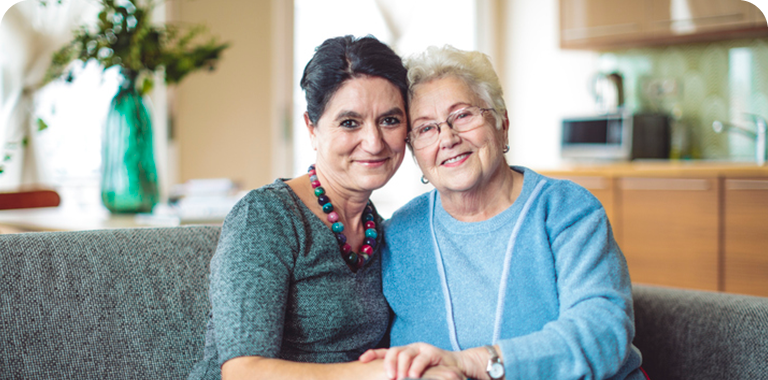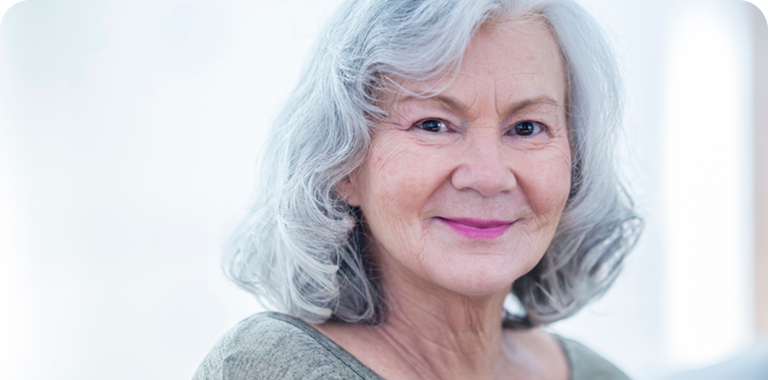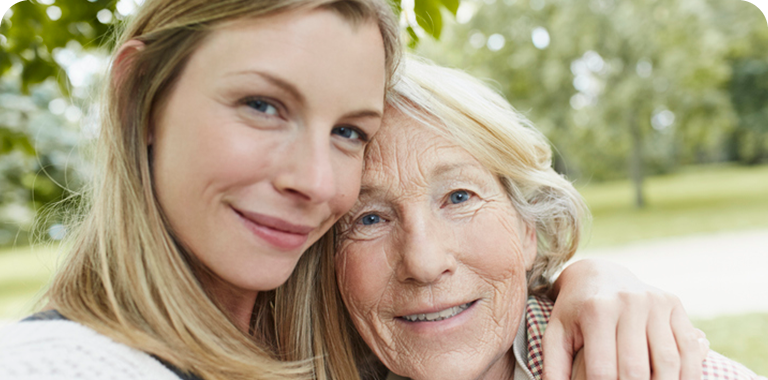

Case Study
Melissa
Melissa's mother was diagnosed with dysphagia at 62 years old. With Melissa’s support and humour to help brighten her mom’s day, she continues to enjoy mealtimes with the family.
At 40 years old, I became a caregiver for my mother when she was diagnosed with dysphagia as a result of cancer.
I had no idea what was wrong or why my mother wasn’t able to eat like she used to before her diagnosis of dysphagia. Mealtimes went from a fun family time to a stressful situation where my mom continuously struggled.
My mother was upset when she received her diagnosis, so I knew I had to help her get through it. I decided to become her caregiver and help support her on this journey, and I tried my best to fill any gaps in my knowledge about dysphagia. Our family doctor was amazing and provided us with lots of different resources and information, so we didn’t feel as though we were lacking in support.
Although I was relieved that we finally knew how to support her, I didn’t realize just how much it would impact our daily lives.
Eating with dysphagia
My mom’s dysphagia mostly affects her ability to eat regular foods and drink thin liquids, so I’ve had to adapt her meals. One of her favourites is minced meat shepherd’s pie, but I always try to give her variety in her diet — no one wants to eat the same meal every day!
My mom and I have faced some challenges since her diagnosis, particularly her feeling dependent on me for preparing her food and drinks. I always try to bring a smile to her face by telling her to pretend she’s at a bed and breakfast where she chooses what food and drinks, she wants for tomorrow and never has to pay the bill. We find that adding a touch of humour into our day helps her feel better about her diagnosis.
Raising awareness
I believe that dysphagia awareness is lacking, and the more we talk about it, the more accepted it will become.
My mom still wants to go to restaurants, and I won’t let her diagnosis stop her. She brings her own shakes with her while we eat, but this is something that not all people with dysphagia will feel comfortable doing.
However, with increasing awareness and support, we can work towards a society that understands that not everyone’s diet and way of eating are the same.
So, learn about dysphagia and don’t be afraid to talk about it. This way, others like my mother, and possibly one of your own loved ones, will feel less discouraged if they are diagnosed with dysphagia.
After caring for my mother, I've realized that having dysphagia means that every day is different. Your loved one may be able to eat something one day and then not the next.
It’s all about adapting and taking a deep breath — tomorrow is always a new day.



